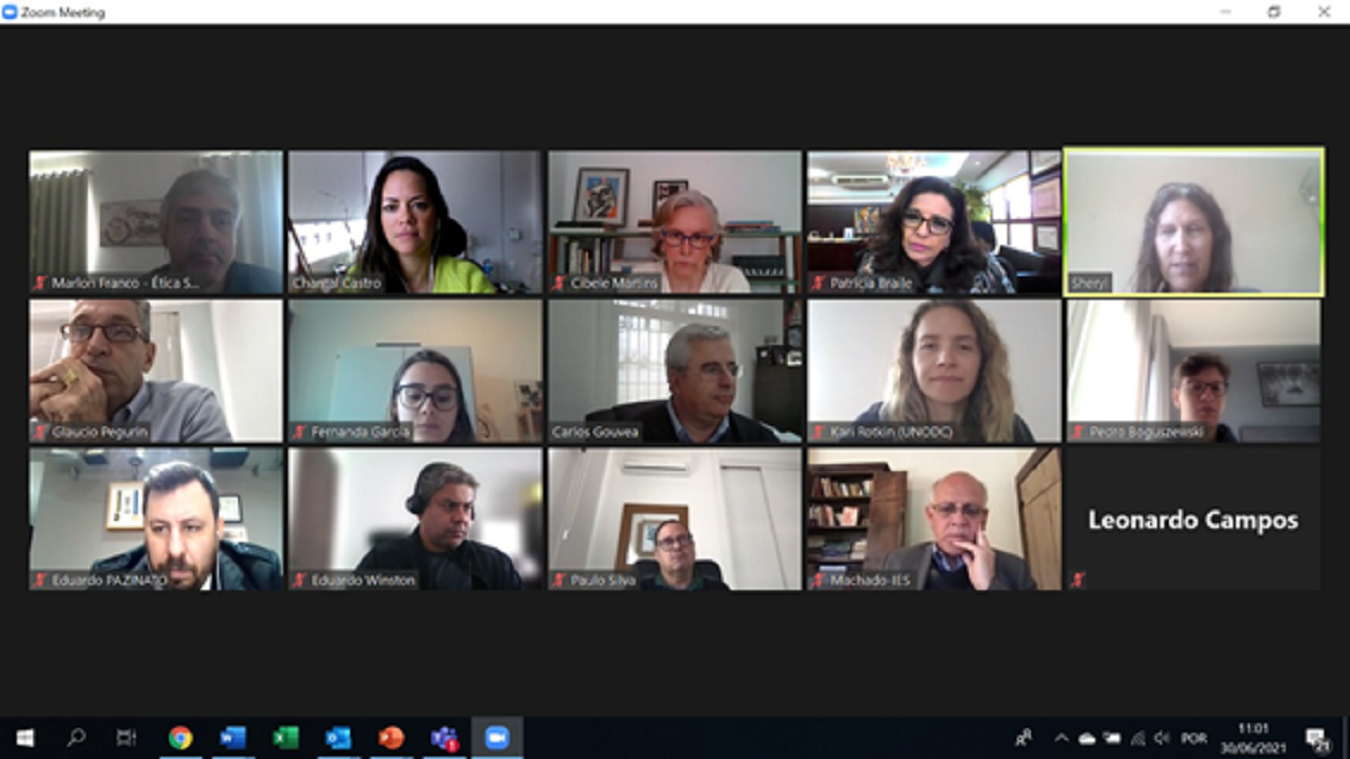
The United Nations Office on Drugs and Crime (UNODC) and the Ethics Health Institute met on 30 June to discuss the partnership in the scope of the UNODC's global project "Anti-Corruption Response and Recovery to COVID-19", implemented with the support of the Bureau of International Law Enforcement and Narcotics (INL/USA). The project aims to assist nine countries (Argentina, Brazil, Chile, Colombia, Indonesia, Paraguay, Philippines, South Africa, and Timor-Leste) in the recovery from Covid-19 by promoting integrity in public procurement and the development and strengthening of whistleblower protection mechanisms.
The partnership includes the support and participation of IES in the thematic dialogues to be held by UNODC Brazil in the second half of 2021 in the frameword of the Project; the participation of UNODC Brazil in the IES international event in August 2021 - 1st Americas Health Ethics Virtual Forum; the support of IES in the development of a whistleblower pilot in a health institution in Brazil, to be developed by the international consultant, UNODC Vienna partner, Sheryl Goodman; and the support of IES in the works that will be prepared and launched by UNODC Brazil under the Project.
"The representativeness and professionalism of the Ethics Health Institute will be crucial to strengthen the agenda of integrity and fight against corruption in the health sector," says the UNODC Brazil Project Supervisor and Compliance Expert, Eduardo Pazinato.
The UNODC Brazil Project Officer, Chantal Castro, reinforces that "the partnership should promote a more ethical and transparent health sector, something especially necessary in times of pandemic".
For the IES Institutional Relations Executive, Carlos Eduardo Gouvea, "the opportunity to establish deeper ties with UNODC will allow IES to count on international support and experiences in the fight against corruption in health, accelerating many of the actions that are in its Strategic Plan. Furthermore, we will be able to increase the visibility of the results we have achieved, serving as a benchmark for other countries and thus creating a positive movement with global impact".
The meeting was attended, on the part of UNODC Brazil, by the National Project Officer, Chantal Castro, and the specialist in Security, Justice, and Compliance, Eduardo Pazinato; and, from UNODC Vienna, by the Associate Officer for Crime Prevention and Criminal Justice, Kari Ann Rotkin. On the part of Ethics Health Institute, were the president of the Board of Directors, Eduardo Winston; the Vice President of the Board of Directors, Patrícia Braile; the members of the Board of Directors, Marcos Machado and Gláucio Libório; the Institutional Relations Executive, Carlos Eduardo Gouvea; the Executive Secretary, Cibele Martins; the Compliance Advisor, Marlon Franco; the member of the Ethics Council, Paulo Silva; and the lawyer, Leonardo Campos; besides the Cofounder of Procurement Integrity Consulting Services (USA), partners of UNODC Vienna, Sheryl Goodman.
Learn More: http://www.agenda2030.com.br/